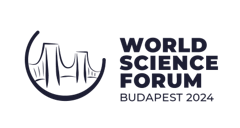Programme / Ministerial roundtable I – Strengthening Trust in Science: Promoting Effective Science-Policy-Society Nexus and Values in Science
‹ back to Programme listerDay
Thursday / 21 NOV
12:15 - 13:30
Summary of the roundtable by session rapporteur Dr Imola Wilhelm, Senior Research Associate, Biological Research Centre, Szeged:
Moderated by Lidia Brito, Assistant Director-General for Natural Sciences at UNESCO, the panel explored the critical issue of the erosion of trust in science and strategies for its restoration. In her opening remarks, Lidia Brito emphasized the imperative for science to address societal needs, highlighting that science-based solutions and informed decision-making are pivotal to achieving sustainable development. She observed that growing societal resistance to scientific evidence, coupled with rising inequalities and the looming threat of violence, necessitates the development of robust tools to confront these challenges. Among the key instruments she cited were UNESCO's 2017 Recommendation on Science and Scientific Researchers and the UNESCO Recommendation on Open Science.
The panel discussion commenced with members sharing their perspectives on the primary challenges undermining trust in science. Tiago Braga, Director of the Brazilian Institute of Information in Science and Technology, analyzed the components of information disorder and highlighted the largely untapped potential of social media as a tool for rebuilding trust. László Bódis, Deputy State Secretary for Innovation at the Ministry of Culture and Innovation of Hungary, emphasized that “science needs to reach beyond the academic community” and stressed the importance of enabling the public to understand the work of scientists and the collaboration between scientists and policymakers. Professor Ruth Morgan, from the UCL Arista Institute at University College London, pointed to the insufficient dialogue between scientists, policymakers, and the public as a critical barrier. In support of these observations, Professor Ana María Cetto, from the Instituto de Física at Universidad Nacional Autónoma de México, underscored additional obstacles, including low levels of science literacy and increasingly fragmented societies.
Turning to potential solutions, Ana María Cetto highlighted open science as a means to extend the benefits of science to all sectors of society. “We need a new social contract with science,” asserted Ruth Morgan, once again emphasizing the vital importance of fostering dialogue. László Bódis observed that “the best ambassadors are the greatest scientists,” underlining the need for prominent figures in science to lead outreach efforts. Tiago Braga concluded by stating that the “popularization of science is something that we have to take care of.”
Following the panelists' concluding reflections, Lidia Brito invited input from the audience. One participant stressed the importance of encouraging scientists to take an active role in communication, while another highlighted the growing workload scientists must cope with and the need for task delegation to alleviate pressures. A third contributor linked trust in science to a sense of responsibility, prompting Ana María Cetto to offer a final remark: namely that trust in science demands professional, social, and moral accountability from all stakeholders.
Moderator:
Speakers:
- Ana María Cetto, Professor, Instituto de Física, Universidad Nacional Autónoma de México
- Ruth Morgan, Professor, UCL Arista Institute, University College London
- László Bódis, Deputy State Secretary for Innovation, Ministry of Culture and Innovation of Hungary
- Tiago Braga, Director , Brazilian Institute of Information in Science and Technology.
